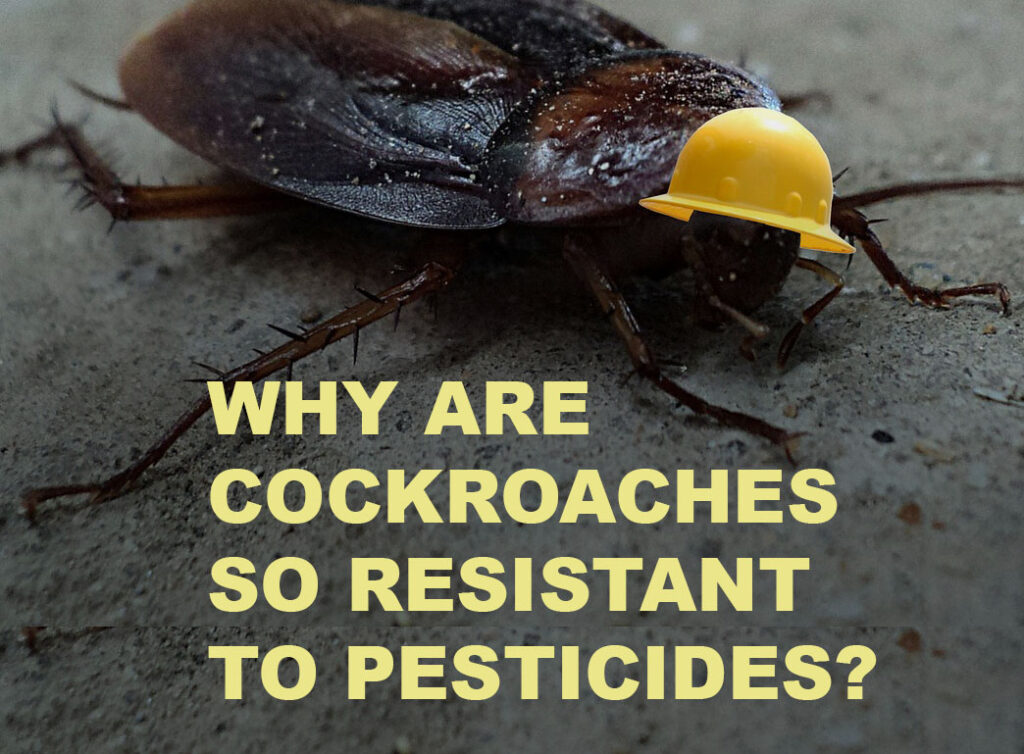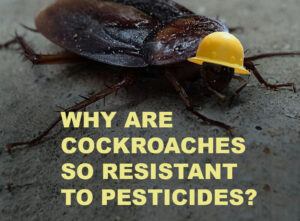At first glance, cockroaches appear to be the exact opposite of resilient. They’re icky, squishy and frail-looking. They have a slow plodding gait that seems like they could be crushed at any moment. But as any apartment dweller knows, cockroaches are among this planet’s toughest creatures. Consider these facts:
Cockroaches are resilient!
When it comes to cockroaches, you can’t just spray them and expect them to die. It’s not that simple. Cockroaches are resilient creatures. They have adapted their bodies to withstand many of the common pesticides used in homes today. They can survive without oxygen for 40 minutes. They can also withstand radiation exposure 20 times the lethal dose required to kill a human. A cockroach’s exoskeleton is so strong that it will even continue to move without its head.
Cockroaches can also find refuge from most pesticides by hiding in tiny spaces. Crevices on walls or under baseboards can hide an infestation.

Their bodies are naturally programmed to respond to pesticides, which is a form of natural selection.
Cockroaches have an exoskeleton. This means that they are protected by their hard outer shell. The exoskeleton also allows them to survive falls as it protects them from serious injuries.
Their respiratory system is very efficient at catching oxygen. They can live longer without needing food or water than other types of insects making them even more resilient.
The digestive system takes up most of a cockroach’s body. It is inside its abdomen (which is why you see so many pictures online showing close-ups). This allows it to eat substances toxic enough kill smaller creatures such as mice or rats!
They can withstand radiation exposure 20 times more than humans.
Cockroaches are able to withstand radiation exposure 20 times the lethal dose required to kill a human. In fact, scientists have found that cockroaches can survive a nuclear blast.
They can live without their heads for weeks before they die.
This is because the brain isn’t where the cockroach’s blood supply lies; it’s in its abdomen. When a cockroach gets decapitated, its body will still squirm around for a while until it loses consciousness from lack of oxygen (or dies from something else). The headless cockroach will be able to survive through this period. It has no way of recognizing that there’s something wrong with it. Cockroaches don’t have any sensory organs or pain sensors in its neck region.They can survive without oxygen for 40 minutes.
While roaches can survive for a long time without oxygen, they need it to live. If a cockroach goes without oxygen for too long (about 40 minutes), its body will begin to shut down and die. When this happens, the insect loses all consciousness and stops moving. A cockroach that is deprived of oxygen may appear dead because it is not moving. But, if you cut open a cockroach that has been deprived of oxygen recently enough, there will still be some activity. This is due to some residual chemical reactions inside cells in its brain. The chemical reactions aren’t strong enough anymore for the creature to respond.But mostly, they can hide in tiny spaces.
One reason cockroaches are so difficult to get rid of is because they can fit into the tiniest of cracks and holes. This makes it difficult for insecticides to reach them when they’re tucked away in tight spaces.
In addition, many bugs have an exoskeleton that prevents pesticide from penetrating their bodies. Cockroaches also secrete a compound called hydrophobic wax. This wax repels water and makes it difficult for insecticides to enter their bodies.
Cockroaches are uniquely resilient creatures with many impressive attributes. Despite their ability to survive in extreme conditions, there are ways to exterminate them from your home. If you’re worried about an infestation, contact a professional pest control service to help combat these pesky insects.

Local Cockroach Control in Your Home
Local Cockroach Control in Your Home Cockroaches can be a pest to your home and business. They are very difficult to control and can cause health problems. Cockroach prevention is easier than cockroach control, but it does not necessarily eliminate the problem entirely. Cockroaches usually enter through small openings around windows and doors, or in

Why are cockroaches so resistant to pesticides?
They have adapted their bodies to withstand many of the common pesticides used in homes today.
